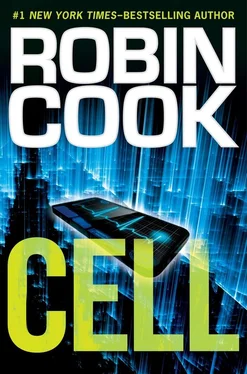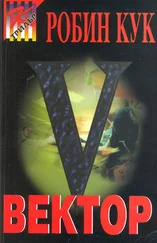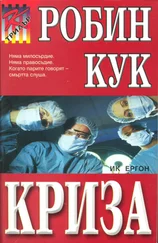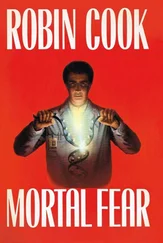George found himself nodding. It was apparent to him immediately that iDoc had handled Kasey’s diabetes and why she didn’t talk about it. Kasey’s word was her bond, and she had obviously signed a nondisclosure agreement. He remembered how pleased she was at the time, being free of her usual burdensome monitoring. George even knew she had had some sort of implanted device. Now he knew what it had been. It had been a reservoir just as Paula was describing.
Paula concluded by saying that embedded reservoirs have been and would be used for various ailments, and not just for chronic diseases, noting that it would be the answer to the problem of poor compliance that a number of patients demonstrate when it comes to taking medications as instructed.
Despite his irritation at having been, in his words, ripped off on the concept, George became progressively impressed by what he was hearing. He could tell everyone else in the room felt the same. Paula was offering understandable specifics, and everyone was listening with rapt attention. George could easily see why iDoc would make a superb primary-care doctor, especially when the doctor was available 24/7 to answer a patient’s questions without the inconvenience of having to make an appointment, travel to an office, and wait to be seen by someone who might be rushed, distracted, or not able to find the appropriate patient records, and, worse yet, might have forgotten half of what he or she learned in medical school.
“From the outset,” Paula continued after another astutely planned pause, “we wanted to make iDoc extremely personable. The client-patient can choose the gender of his doctor avatar as well as his or her attitude in relation to being paternal or maternal in tone. So far there is also a choice between forty-four languages and several accents. There are also choices available regarding how the patient would like to be notified when his iDoc doctor wants to have a chat when stimulated by a change in the client-patient’s constant physiological or mental monitoring.
“I want to emphasize that iDoc never has a memory lapse, never gets tired, never gets angry, is never on vacation, and never has a drink, pain reliever, or sedative. And lastly, client-patients can select a name for their avatar doctor, either made up or from a preset list. If they don’t want to be bothered, a name will be selected for them with a choice of ethnicities. For privacy concerns, if a client-patient’s speakerphone is activated, iDoc will ask patients if they are alone and if it’s okay to have an open audio conversation. iDoc will strictly guard patient confidentiality, using the full gamut of biometric identifiers.
“What I have just given is a rapid, superficial overview of iDoc. It uses an extraordinarily versatile algorithm. As Mr. Thorn mentioned, the reception by our client-patients throughout the beta test has been exceptionally positive far beyond our expectations and hopes. People love iDoc and already are telling us they don’t want to give it up at the conclusion of the test period and are eager to share their experience with family and friends, which they have been strictly forbidden to do. iDoc has already saved lives as well as time and inconvenience for the patients that have it, and it has saved money, too.” Paula paused on that note, letting the audience absorb the information. When everyone realized she was done, applause erupted. Paula waited a few beats, acknowledging the audience’s response, then said a quick thank-you.
George marveled at why other people had not come up with the iDoc idea. After Paula’s presentation it seemed intuitive, given current technology. He watched Paula return to her seat as the third speaker approached the front of the stage. George hoped he might catch her eye, but she didn’t look in his direction.
Lewis Langley addressed the audience for only a couple of minutes. Even from where George was sitting he could see his cowboy-style fitted shirt had snaps instead of buttons. With his hair that was cut long, giving Langley a rather wild, artsy look, George got the impression he was the right-brain, creative type in contrast to his left-brain colleagues.
“I’m not going to take much of your time,” Langley said with a discordant New York accent. “There are only three things I want to convey above and beyond what you have already heard from Mr. Thorn and Dr. Stonebrenner. First off, and most important, the iDoc algorithm was written to be heuristic so that it would improve itself by learning on its own over the course of time. This has already proven to be the case to a marked degree during the beta test. As a backup to iDoc, Amalgamated has employed a large group of internists, surgeons, and other specialists who rotate through a twenty-four-seven state-of-the-art call center. At any given time there are at least fifty of them on hand.
“These doctors assist iDoc’s automated decision making as a default mechanism whenever there is the slightest problem. At first, at the outset of the beta test, there were quite a few calls, maybe as often as twenty percent of the episodes. But that changed rapidly, and during the course of the three-month beta-test period, the number of calls coming into the center dropped by eleven percent, meaning the iDoc logarithm is indeed learning.
“The second issue I want to explain is that important subjective issues have been meticulously researched and included in the iDoc algorithm, such as pain and suffering associated with treatment options and possible outcomes, something traditional medicine has always had great difficulty considering. Cost was another issue taken into consideration in the iDoc algorithm. For example, generic drugs are prescribed, provided the efficacy between the generic and the brand-name drug is equal. If the brand-name drug is superior, it is prescribed.
“The third and last issue I want to mention is that it is my firm belief that iDoc will bring about a miraculous democratization of medicine, somewhat akin to what the Gutenberg Bible did for religion. iDoc will free the general public from the clutches of doctors and the medical profession just as the Bible freed the public from the clutches of priests and organized religion. iDoc will be making the paradigm of the practice of medicine personal, meaning that if a drug is prescribed, it will be prescribed because iDoc knows that it will benefit the specific patient rather than knowing it will benefit five percent of patients with the hope that the specific patient will be part of that five percent. Because of this democratization of medicine, I believe the introduction of iDoc will prove to be on par with or more important than other major technological milestones, such as the development of the computer, the Internet, the mobile phone, and DNA sequencing.”
Dr. Clayton Hanson was the final speaker to address the audience. Despite acknowledging to himself that he was acting ridiculous, George flattened himself down in his chair throughout Hanson’s brief talk. His remarks, in contrast to those of the other speakers, were pedestrian. He talked briefly about the medical imaging capabilities of iDoc, particularly ultrasound in conjunction with a wireless handheld transducer. He listed as an example the cardiac function tests that could be performed from the privacy of the patient’s home. Until now these tests required multiple hospital visits and thousands of dollars. His point was that not only was iDoc a better primary-care physician than a flesh-and-blood individual, it was also going to save society a significant amount of money immediately and over the long haul.
Thorn stepped forward again as soon as Clayton finished and took his seat. “Thank you all for attending. And before I open the floor to questions, I want to remind you that we’ll be having a reception and buffet lunch in the restaurant on the first floor of this tower immediately following our presentation, so we all have a chance to speak personally. Okay, who’s first?” A number of hands shot up. The excitement in the room was palpable.
Читать дальше












